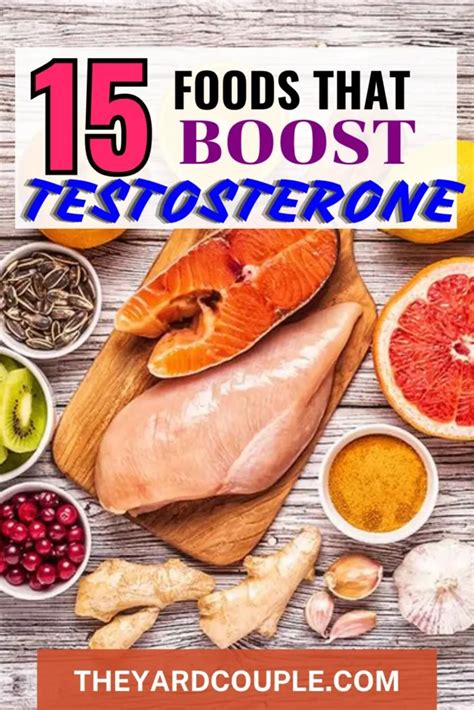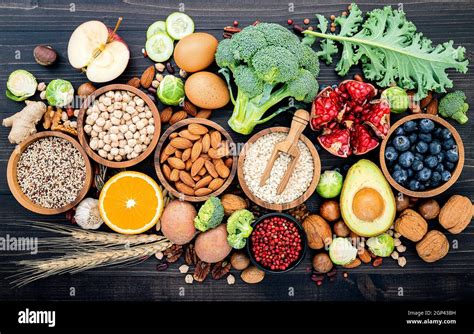What are the best whole foods for boosting testosterone & muscle recovery?

The Power of Whole Foods for Hormonal Balance and Physical Repair
The quest for optimal health, peak physical performance, and robust vitality often leads us back to the basics: the food we eat. For individuals focused on boosting testosterone levels and accelerating muscle recovery, whole foods offer a powerful, natural, and sustainable solution. Ditching processed items for nutrient-dense whole foods can profoundly impact hormonal balance and the body’s ability to repair and rebuild after strenuous exercise.
Fueling Testosterone Production Naturally
Testosterone, a crucial hormone for muscle growth, bone density, and overall well-being, is heavily influenced by diet. Certain micronutrients play pivotal roles in its synthesis.
Zinc-Rich Foods
Found abundantly in oysters, red meat, poultry, beans, nuts, and dairy, zinc is vital for testosterone production. Deficiencies are linked to lower levels, making these foods essential for maintaining healthy hormone balance.
Vitamin D Sources
Often called the “sunshine vitamin,” Vitamin D also functions as a steroid hormone. Fatty fish like salmon and mackerel, egg yolks, and fortified foods are excellent dietary sources. Adequate Vitamin D is strongly correlated with healthy testosterone levels.
Healthy Fats
Don’t fear fats! Monounsaturated and polyunsaturated fats, found in avocados, olive oil, nuts, and seeds, are essential for hormone synthesis. Cholesterol, from healthy sources like eggs, is a precursor to testosterone, making these fats indispensable for optimal function.
Magnesium-Packed Options
Green leafy vegetables, nuts, seeds, legumes, and whole grains are rich in magnesium, a mineral shown to support free and total testosterone levels, especially in active individuals, contributing to overall vitality.

Accelerating Muscle Recovery and Growth
Post-workout recovery is just as crucial as the workout itself. The right whole foods can significantly reduce soreness, repair damaged muscle fibers, and replenish energy stores, setting the stage for consistent progress.
High-Quality Protein
These are the building blocks of muscle. Lean meats (chicken, turkey, beef), fish (salmon, tuna), eggs, dairy (Greek yogurt, cottage cheese), and plant-based options (lentils, chickpeas, tofu) provide essential amino acids needed for muscle repair and synthesis.
Complex Carbohydrates
After intense exercise, muscle glycogen stores are depleted. Replenishing these with complex carbs like sweet potatoes, oats, quinoa, brown rice, and whole-grain breads is crucial for energy restoration and preventing muscle breakdown, ensuring you’re ready for your next session.
Anti-Inflammatory Foods
Intense exercise causes inflammation. Berries (blueberries, strawberries), tart cherries, leafy greens (spinach, kale), fatty fish (omega-3s), and spices like turmeric and ginger possess potent anti-inflammatory properties, aiding in faster recovery and reduced muscle soreness.
Hydration and Electrolytes
While not a “food,” water is fundamental for every bodily process. Coupled with electrolyte-rich foods like bananas (potassium), avocados, and leafy greens, proper hydration supports nutrient transport and optimal muscle function.

Synergistic Whole Foods for Optimal Results
The beauty of whole foods lies in their comprehensive nutrient profiles. Many foods offer benefits for both testosterone and muscle recovery, creating a synergistic effect. For example, fatty fish provides healthy fats for testosterone production and omega-3s for inflammation reduction. Similarly, eggs offer cholesterol for hormone synthesis and high-quality protein for muscle repair.
Prioritizing a diverse diet rich in fruits, vegetables, lean proteins, healthy fats, and complex carbohydrates ensures you’re covering all your bases. Focus on minimally processed, single-ingredient foods whenever possible to maximize their inherent nutritional value.

Practical Strategies for Implementation
Integrating these beneficial whole foods into your daily diet doesn’t have to be complicated. Start by consciously incorporating one new testosterone-boosting or recovery-enhancing food each week, gradually building a more nutrient-rich eating pattern.
Meal Preparation
Prepare protein sources, cooked grains, and chopped vegetables in advance to make healthy eating easier and more accessible throughout the week, reducing the temptation of less nutritious options.
Smart Snacking
Choose snacks like a handful of nuts, a hard-boiled egg, or Greek yogurt with berries instead of processed options that offer little nutritional value. These choices support your goals throughout the day.
Listen to Your Body
Pay attention to how different foods make you feel and adjust your intake accordingly. Everyone’s body responds uniquely, and consistency in your dietary choices is key for long-term results and sustained progress.

Conclusion
Optimizing testosterone levels and accelerating muscle recovery are attainable goals through a strategic whole-food diet. By consciously including nutrient-dense foods rich in zinc, Vitamin D, healthy fats, high-quality protein, and complex carbohydrates, you provide your body with the essential tools it needs to thrive and perform at its best.
Remember, nutrition is the cornerstone of both hormonal health and physical performance. Embrace the power of whole foods to unlock your full potential and achieve your fitness and wellness objectives.










